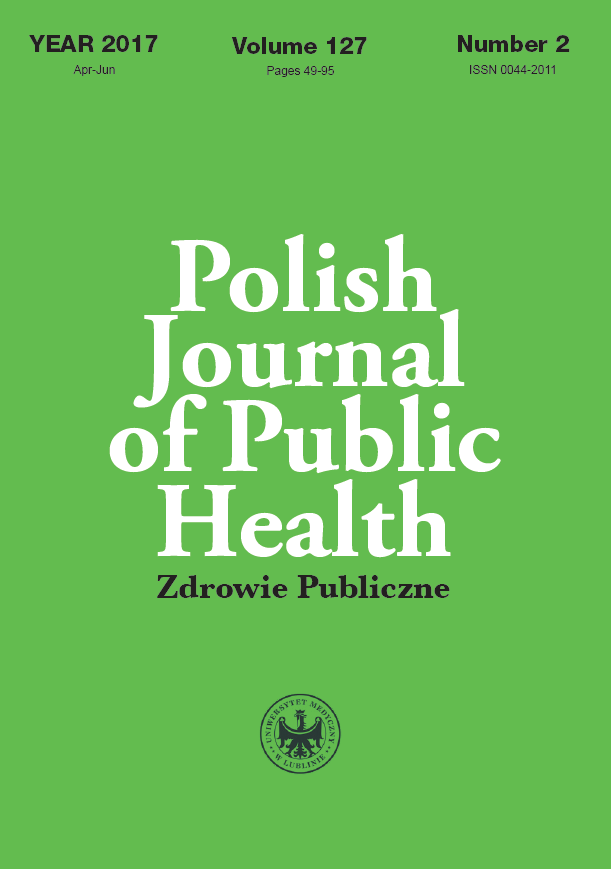Social and Psychological Background for Emergence of Hypochondriacal Personality Disorders
DOI:
https://doi.org/10.1515/pjph-2017-0018Keywords:
hypochondriacal personality disorders, professional tolerance of an individual, psychosomatic health, profession, sociometric dimensionAbstract
Introduction. A hypochondriacal disorder is among the least extensively studied psychopathological phenomena. It is, above all, characterized by the excessive concentration on the person’s own psychosomatic feelings. Hypochondriacal attitude causes various age crises generated by the weakening of psychophysical functions, reduction of abilities, change of the major activity and social status. The present requires new approaches towards the realization of the national policies in the sphere of maintenance of optimal functioning and efficiency of the Ukrainian society.
Aim. The aim of the study was to emphasize the preconditions for the emergence of hypochondriacal personality disorders in sociometric dimension, as well as people’s professional tolerance to the disease.
Material and methods. The study involved 236 teachers of rural and urban schools, of which 78% were women and 22% (52 respondents) were men. The teachers were asked about the level of their job satisfaction.
Results. Quite a large proportion of respondents ‒ 56% (132) is satisfied with their professional activity. Nevertheless, the teaching conditions, especially in rural schools, block up their professional advancement. According to the results of the research, about a third of the respondents (75 people, or 32%) is partially satisfied with their job, while those not satisfied made up 12% (28 respondents). Such level of job satisfaction testifies that a crucial problem nowadays is not a pedagogical job placement, but on the contrary, an improper professional orientation, wrong choice of qualification, biased personality orientation. Other complaints made in the survey included statements concerning poor salaries, unhealthy socio-psychological atmosphere among the teaching staff, teachers’ own poor health, etc.
Conclusions. Decoding a hypochondriacal “message” is only possible through the analysis of the defective transactions between the individual and his/her family or social environment. The absolute self-activation of a individual is realized through the interaction between the personal potentials determined by the state of the optimal functioning of a person and social recognition as a factor of maintaining teacher’s spirituality in the form of professional self-consciousness.
References
1. Vilsh, I. Choosing a Profession: Personal Aspect. Pedagogical Process: Theory and Practice. 2003;1:36-53.
2. Melnychuk OS. Ukrainian Etymological Dictionary. 2003;4:656.
3. Ilin YP. Differential Psychology of Activity. 2008. p. 432.
4. Kovalenko AB, Kornev MN. Social Psychology. 2006. p. 400.
5. Pashchenkov SZ. Hypochondriac states. 1958. p.130.
Downloads
Published
Issue
Section
License
Copyright (c) 2018 Polish Journal of Public Health

This work is licensed under a Creative Commons Attribution-NonCommercial-NoDerivatives 3.0 Unported License.


